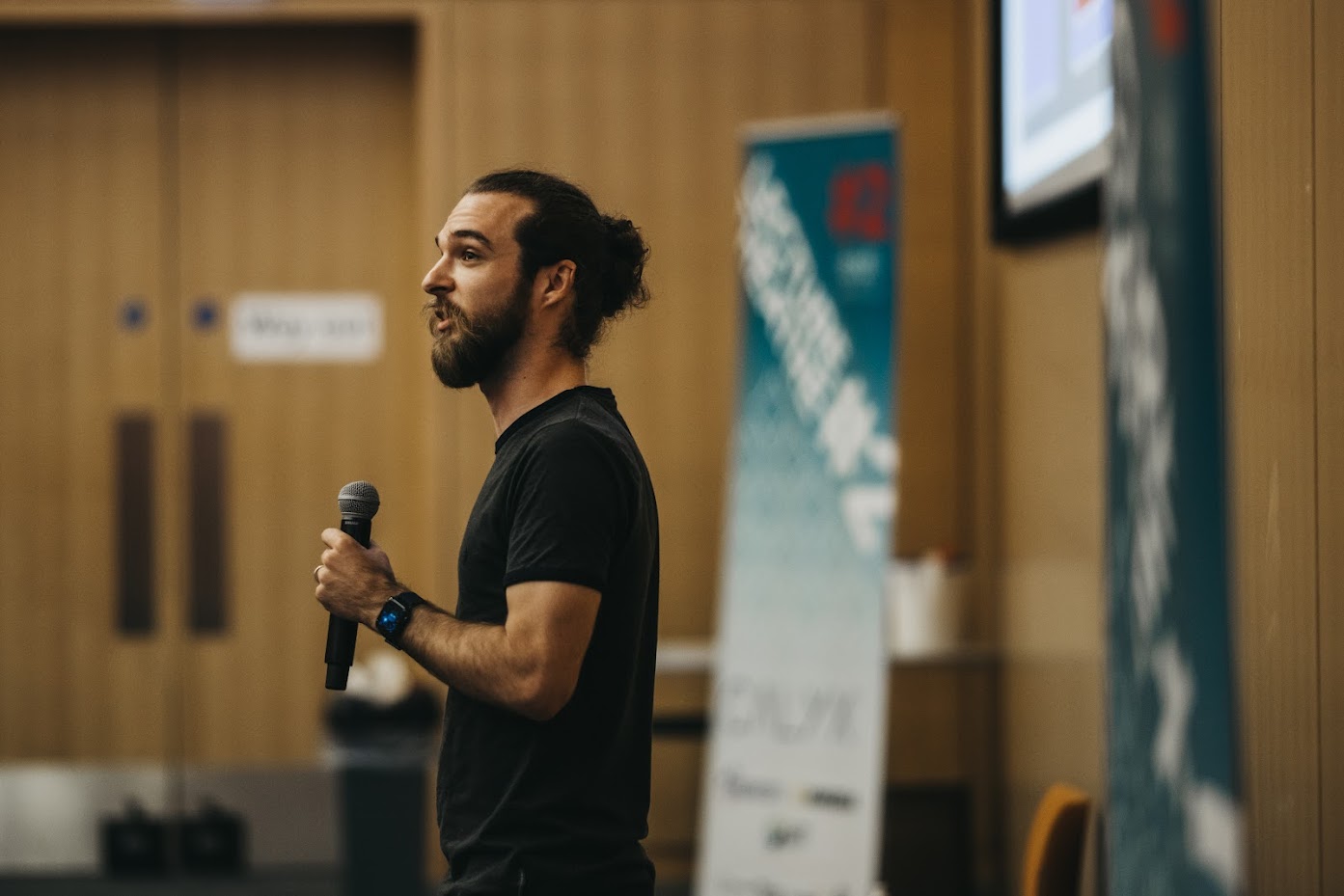Tell us about you
Introduction
As part of most talk submissions, you need to provide a speaker biography. Now we’ve all felt the pain of writing personal statements and making our achievements sound great. It’s a bit cringe worthy, it’s difficult and it’s not a lot of fun. Doing this in one to two paragraphs can be a bit of a nightmare.
To help out, here are some of our top tips when writing a bio.
What to include
There are many ways in which to structure a biography. This is what we would suggest as a high level guide.
Who are you?
Jessica is a software developer, international speaker & avid learner.
What is your name and what do you do? Some people include their place of work in this section.
What are your qualifications?
Topics that they are interested in include community building, monitoring and continuous improvement of systems. They are a Director and Co-Founder of DDD East Midlands, a technology conference which will take place in 2023.
The above is for showing your credentials, and changes per conference. What do you do for your work or associated activities that relates to your topic? Don’t write your resume but show why you are credible.
This may be a selling point to people coming to see your talk.
Something personal
Before switching to technology, they spent a previous life as a neuroscientist. They are easily bribed with coffee & love hearing about other people’s experiences.
Add a statement that gives other people an excuse to chat to you. Make it something humanising, that gives others the chance to come up and have something to approach you with.
Pronouns
A nice little extra - if you can put your personal preferred pronoun somewhere in your bio, it will help normalise the practice and help people when they are approaching you in person.
Keep it in context
Much like people edit their CV’s and personal statements for certain job applications, you can edit your biography to suit a conference theme or to demonstrate why you are a good person to listen to about your talk topic.
Write in third person
It feels very odd to write in third person, but there are numerous advantages to doing so.
-
SEO — Don’t use your name an unnatural amount but having text about you, mentioning your name will help SEO for the talks featuring it.
-
Help the flow of the sites it appears on — It will appear on sites where it looks like people are talking about you and, as such, will read a lot better with this perspective.
Personally, I prefer writing in this way. Talking in third person makes it feel less like I’m going “me, me, me!”.
Short and sweet
As mentioned before, this isn’t your CV. Like all speeches, the best biographies are short and sweet.
Your audience is going to be people scanning through agendas and selecting talks, or conference panel members who might have to be sifting though hundreds of applications in a matter of days. They are people who need succinct information that doesn’t take much time to read.
If you really struggle with this, you can include a link or two, or base it on your twitter biography if you have one. That character limit can be really handy on showing you what information is important.
Get someone else to summarise you
Though I’m writing about creating your own biographies, my first one was actually written by a friend in the industry. They gave me three sentences and then I embellished.
Sometimes it’s easier to get someone else to write about how awesome you are.
Give it some personality Sugar!
There is never any harm in adding a bit of fun. You aren’t just your name or qualifications, you are an interesting and individual person.
I drink more coffee than is healthy. I love learning from others. I hope both of these aspects come across in my biographies, because I want to be approachable and be fed coffee.
It helps me too. I’m not great at approaching people myself. I’m still a little socially awkward. By giving others a way to approach me and feel they can chat… well it saves some effort and means I don’t miss out on meeting great minds.
Reviews
Don’t rely on just your own thoughts. This is a difficult piece of writing and I haven’t met anyone who enjoys it or thinks they are particularly good at it yet.
Get a friend, a colleague or both to review your biographies. It’ll be valuable.






